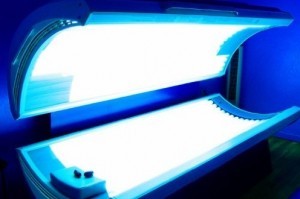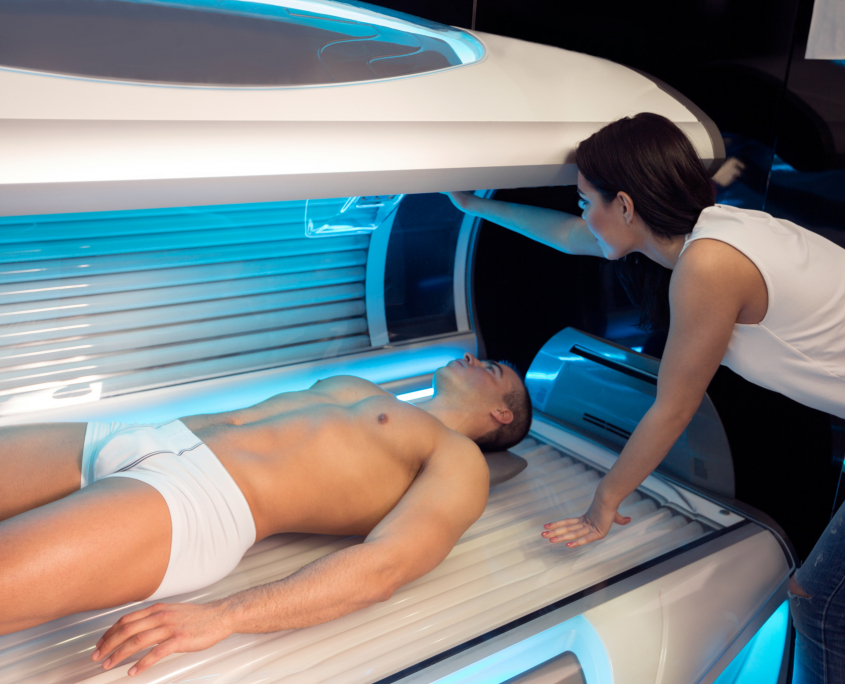Tanning Salons: Should You Consider Buying One?
By Willard Michlin- CPA
General Information
Buying a tanning salon would join you to an industry of roughly 20,000 professional indoor tanning salons and another 15,000 to 20,000 locations—such as health clubs, spas and beauty salons—that house one or two tanning units. The Midwest and Southeast have the highest number of tanning salons per capita, with Ohio, North Carolina, Michigan, South Carolina, Illinois, Indiana and Florida leading the charge.
The majority of U.S. indoor tanning facilities are small businesses. More than 50 percent of them have female ownership. Other industries have 25 percent female ownership, according to the U.S. Census. Indoor tanning also provide jobs for approximately 160,000 employees annually.
The majority of freestanding tanning salons have at least 10 rooms on average. Of those, most have four to five levels of tanning and a sunless unit. In fact, 37 percent of salons surveyed for our 2008 Top 250 Salons issue reported having at least five levels of tanning services. Only 2 percent reported having only one level of tanning. A typical 10-unit salon may feature one big bed, two mid-range or premium beds, a UV standup, five entry-level beds and a sunless unit. Survey statistics reveal that 63 percent of salons reported an average single-session price of $7 or more; only 3 percent charged $5 or less.
Source: 2008-09 Fact Book: “The State of the Industry Report” www.lookingfit.com
Government Regulations

Tanning Salons Have Remarkably Different Overheads than Hair or Nail Salons
Indoor tanning salons are now charging customers a 10 percent surcharge tax that went in March 24, 2010. This is just one of the changes Americans are seeing as a result of the U.S. health care bill signed into law by President Barack Obama. There is no similar surcharge for Hail and Nail Salons.
A big difference between Tanning and Hair Salons is the amount of labor. In a tanning salon, one person can service many clients, putting them in and getting them out of the beds. In a Hair Salon, one client is with one technician the whole time. As a result, labor cost is much higher in a Hair Salon, 50 to 70% of all costs. This explains why doing one’s hair costs so much more than a tanning visit.
The Patient Protection Care Act of 2010, sometimes derisively referred to as ObamaCare, has a lot of elements. There is a heated constitutional argument going on as to whether doing nothing (i.e. not buying health insurance) constitutes interstate commerce. The law added Section 5000B to the Internal Revenue Code. 5000B is an excise tax on indoor tanning services. Whatever the charge is for your indoor tanning services, 10% is added to it. I guess that is to help pay for all the bad health things that indoor tanning does to people. At the moment I’m sitting here with a literally crippling sun burn from the free outdoor tanning service provided by the universe. That’s one way to beat the excise tax. Another part of the bill went into effect May 2011 which requires that no one less than 18 years of age can go to an indoor tanning facility. When buying a tanning salon, check with a lawyer for other changes in the law that would affect you.
What Does It Take For A Tanning Salon to Succeed?
The industry is shifting to more modern high-end salons. The traditional ‘mom and pop’ style locations are phasing out. Gyms, nail salons and beauty shops continue to add single tanning beds. This is perceived as a threat but novice entrants are rarely successful in tanning.
Location is everything. The best locations are near health clubs, gyms, massage faculties, hair salons, nail salons or day spas. Even a busy supermarket can bring business.
Marketing is everything. I suggest you spend 14% of the gross income on promotional actions that go directly to your target market. High quality presentation and service is the next key to success. There are a lot of competitors so you have to have something special. Cheap pricing is not the key. Perceived value is. Having state of the art stand up equipment is where the industry is going. Lay down beds are on their way out.

Buying a Tanning Salon
This industry, like many others, can generate a lot of cash. It is very common in cash businesses for the books not to be accurate. This is due to extra unreported cash income. Don’t let the seller increase the price based on this “income”. This raises the need to have a due diligence expert or CPA with due diligence experience to review the books and records. i have 20 years experience of being a business broker and doing due diligence. I have learned the secrets of proving cash sales for the buyer and seller. It cannot automatically be assumed there is or is not cash income.
Another area that can be confusing is payroll. Some spas pay the staff as employees. Others pay as independent contractors. Sometimes staff is paid bonuses that may or may not be shown on the books. I have run across situations where the payroll on the financials showed 40% of gross but the actual payroll records showed payroll to be 80% of gross. This is not necessarily due to seller fraud or intending to misrepresent the information.Most people using QuickBooks™ are not CPAs. They do not understand accounting. It is common for bookkeepers to not make the necessary year-end adjustments for payroll, taxes and bonuses. This many times explains why the tax returns have the correct payroll but the books do not. I find that I have to restructure most sets of books in order to properly reflect the net income of the business.
Due diligence usually costs less than 2% of the purchase price. Due diligence is only 50% looking at the books and records. What is learned from having the books and records reviewed has historically been worth 10 to 20 times that amount in savings. More importantly, a full review of the operation, understanding of all the income sources and the expense categories educates the buyer. This allows the buyer to determine if this business is really what he wants to invest in. It periodically happens that a buyer decides to pass on a business after due diligence is complete, even though the expected profit is there. He might now see that he would not like owning this business.
Click here to find which business is the right business for you.
Willard Michlin is a CPA, CFE (Certified Fraud Examiner) and Business Broker. He offers assistance, anywhere in the USA, in the key areas involved in the buying of a business: Due Diligence and Business valuation. He is an experienced, honest and trustworthy consultant. He has published many articles and is in demand as a public speaker in and for the business community.
You can write to Willard at Willard@EvaluateABusiness.com and he will always answer your questions. He can also be contacted at his Seal Beach, California office by calling 805-428-2063




